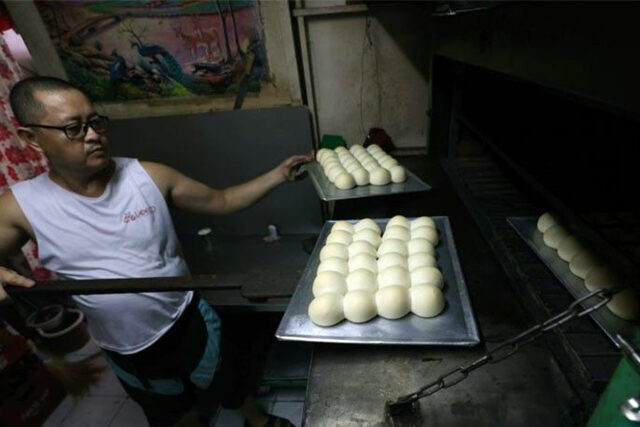Stocks climb further before BSP policy decision
PHILIPPINE STOCKS climbed further on Thursday on continued bargain hunting and as the market positioned before the Bangko Sentral ng Pilipinas’ (BSP) policy announcement at the trading session’s close.
The Philippine Stock Exchange index (PSEi) jumped by 1.14% or 69.06 points to close at 6,113.19, while the broader all shares index rose by 0.78% or 28.54 points to end at 3,647.73.
“The local market extended its rise this Thursday as investors continued with their bargain hunting,” Philstocks Financial, Inc. Senior Research Analyst Japhet Louis O. Tantiangco said in a Viber message. “Investors also took positions while hoping for positive catalysts from the Bangko Sentral ng Pilipinas’ policy meeting.”
“Philippine shares were bought above the 6,100 mark with many investors keeping an eye out for the latest decision of the BSP, which came out right after trading,” Regina Capital Development Corp. Head of Sales Luis A. Limlingan likewise said in a Viber message.
The BSP’s policy-setting Monetary Board on Thursday kept the target reverse repurchase rate unchanged at 5.75%, contrary to market expectations of another cut.
The pause came following three consecutive 25-basis-point (bp) reductions since the BSP began its easing cycle in August 2024.
A BusinessWorld poll had 19 out of 20 analysts penciling in a fourth 25-bp cut at this week’s meeting amid steady inflation and weak economic growth.
“The Monetary Board noted that domestic growth prospects continue to be firm. However, uncertainty over global economic policies and their impact on the domestic economy has increased significantly,” BSP Governor Eli M. Remolona, Jr. said.
“On balance, uncertainty about the outlook for inflation and growth warrant keeping monetary policy settings steady. Before deciding on the timing and magnitude of further reductions in the policy interest rate, the Monetary Board deems it prudent to await further assessments of the impact of global policy uncertainty and the potential effects of the actual policies,” he said.
All sectoral indices ended higher on Thursday. Mining and oil surged by 2.69% or 200.41 points to 7,630.64; services increased by 2.6% or 50.79 points to 1,998.23; industrials went up by 1.81% or 154.49 points to 8,688.81; holding firms climbed by 1.09% or 55.88 points to 5,171.65; property rose by 0.13% or 3.03 points to 2,255.87; and financials inched up by 0.07% or 1.79 points to 2,256.11.
“Jollibee Food Corp. led the index, rallying 10.72% to P262.40. Bloomberry Resorts Corp. was at the tail end, falling 2.70% to P3.60,” Mr. Tantiangco said.
Value turnover increased to P6.08 billion on Thursday with 824.96 million shares changing hands from the P5.85 billion with 533.86 million issues traded on Wednesday.
Advancers outnumbered decliners, 116 versus 86, while 44 names ended unchanged.
Net foreign selling declined to P369.44 million on Thursday from P455.51 million on Wednesday. — R.M.D. Ochave










